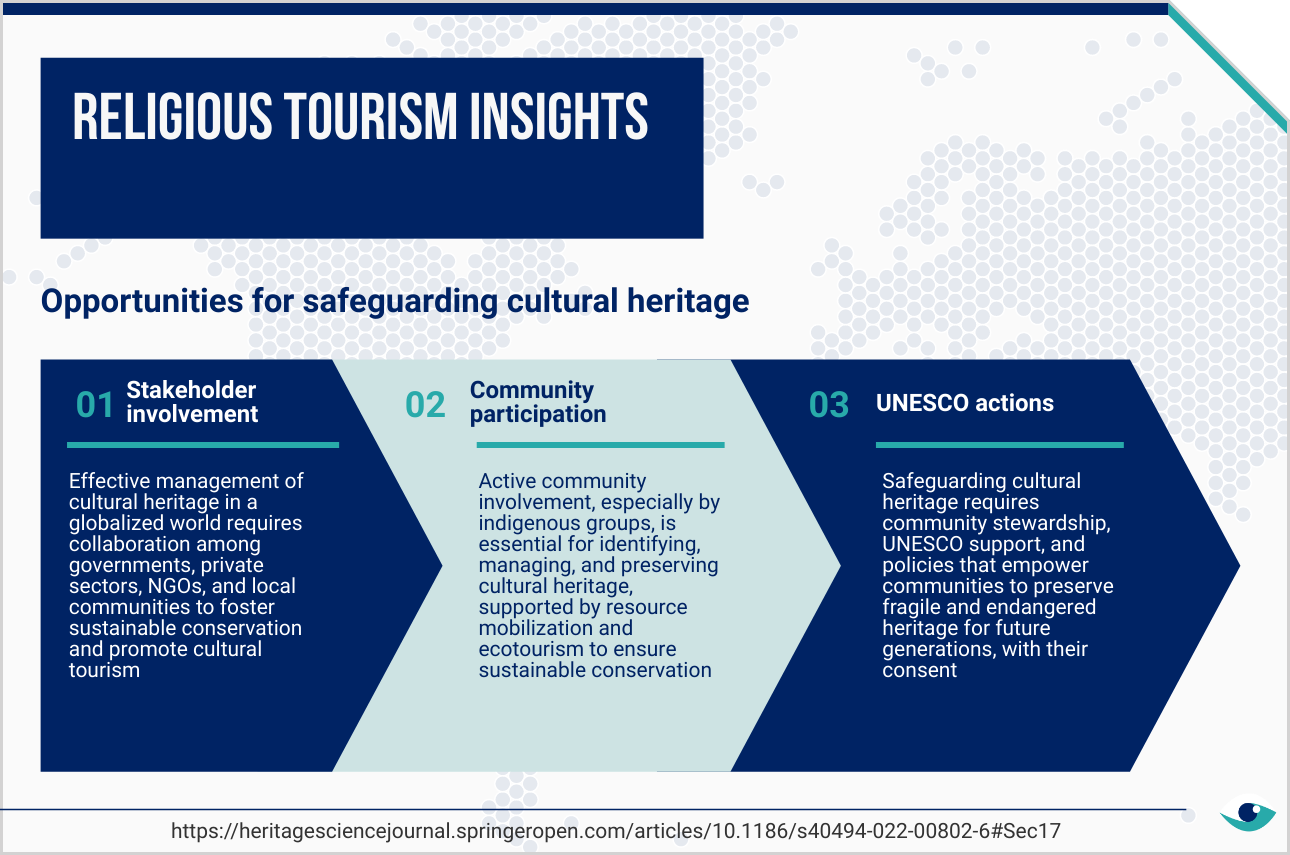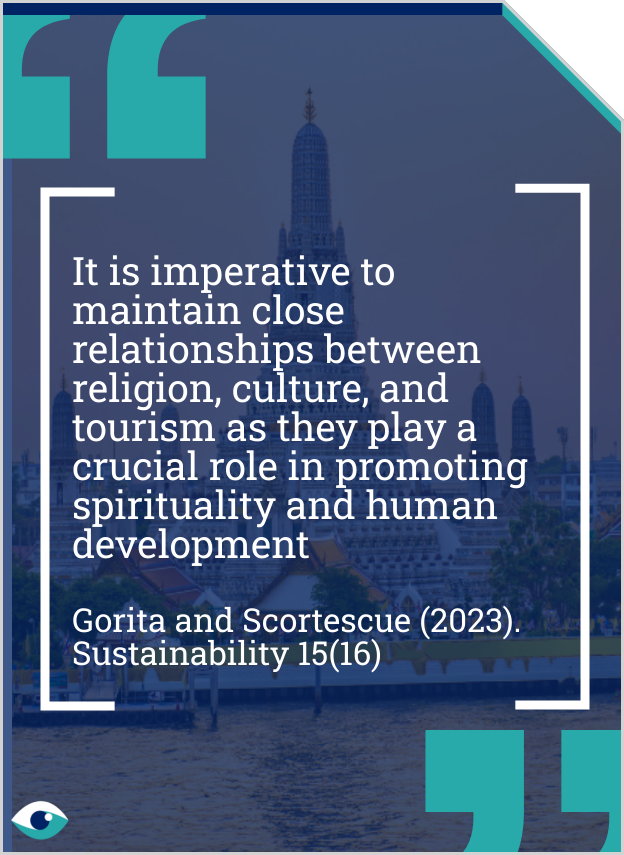International demand for spiritual experiences, driven by more global interfaith dialogue across multiple forums, has rapidly expanded religious tourism – fostering economic growth, cultural understanding and connections among diverse communities and regions. Religious tourism however faces challenges, particularly in regions where geopolitical risks threaten accessibility and security of religious sites. To remain competitive, tourism businesses and policymakers must leverage innovative marketing strategies and technological advancements that enhance visitor access to religious heritage sites, while promoting local ecological and community sustainability.

Religious tourism and sustainable development opportunities
With the right policy support, tools and infrastructure, religious tourism can foster mutual understanding and contribute to local economies
Policy
Tourism (all industries)
Publication date: 02 Jan 2025
By John Gaisford
AT A GLANCE
Interfaith dialogue and the quest for spiritual experiences are driving substantial growth in religious tourism.
Sustainable site management and development, including hi-tech tools to engage visitors and stakeholders, enhance sites’ economic opportunities and preservation.
Relevant national policies and strategies can greatly enhance religious tourism’s positive impacts.
Heritage preservation
Around 20% of listed World Heritage sites have religious or spiritual significance, underscoring the need for careful and sustainable site management. According to UNESCO, enhanced infrastructure both manages visitor volumes and maintains the long-term preservation of cultural and spiritual destinations. Thus, for sacred sites to offer rich visitor experiences, tourism development must respect cultural and environmental diversity, and the wellbeing and vital interests of local communities.
Hi-tech experiences
Digital tools substantially enhance experiences of religious tourist sites, while engaging visitors in their preservation, by incorporating recent technologies into marketing strategies and improved access to religious heritage. Beyond visitor experience, tech tools also help build stakeholder inclusion and awareness around responsible management of religious sites. This, according to the World Heritage Centre, fosters shared understanding and protection of cultural and spiritual destinations. [u1]External link not in notes

Driving economic growth
Religious tourism creates platforms for interfaith dialogue, promoting cultural exchanges and contributing to economic growth. Local businesses particularly benefit from religious tourism, through the introduction of new products and services tailored to tourists, amplifying its positive impacts on the local economy. UNESCO has shown that this form of tourism provides significant employment across multiple sectors, improving regional prosperity, especially with relevant policies in place.

Supportive policies
Despite increased secularisation in societies, the demand for religious experiences drives a broad range of tourists to spiritual destinations including India. This holds vast global growth potential, if supported by national policies to simplify visa processes and create additional flight routes for visitors. Companies such as Agoda support sustainable development and avoid over-tourism by marketing and promoting appropriate alternatives to overly popular religious locations.
FURTHER READING
- Heritage of Religious Interest (UNESCO)
- Exploring Religious Tourism in District Buner (IJHS)
- Religious Tourism and Sustainable Development…in the Northeast Area of Romania (Sustainability Journal)
